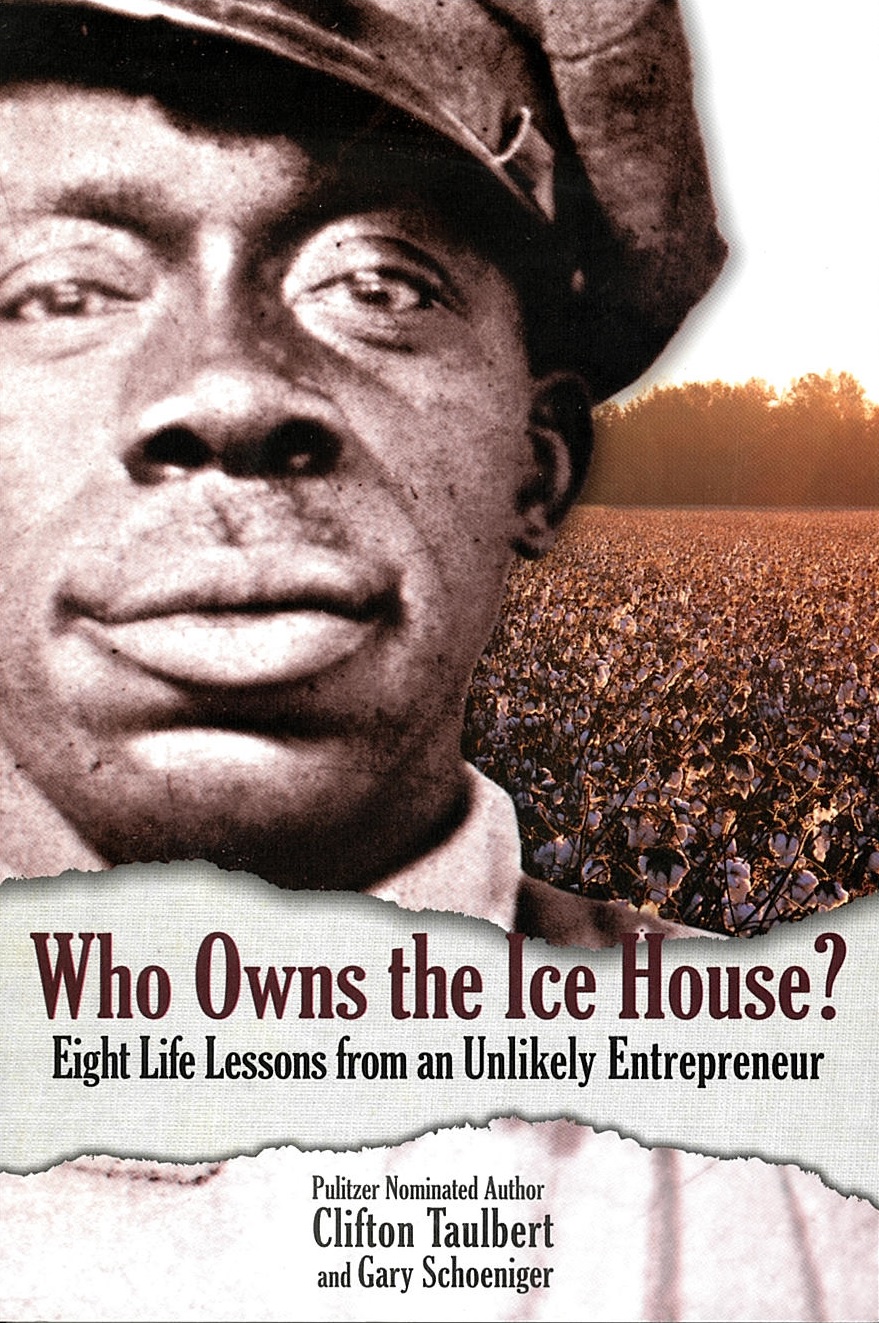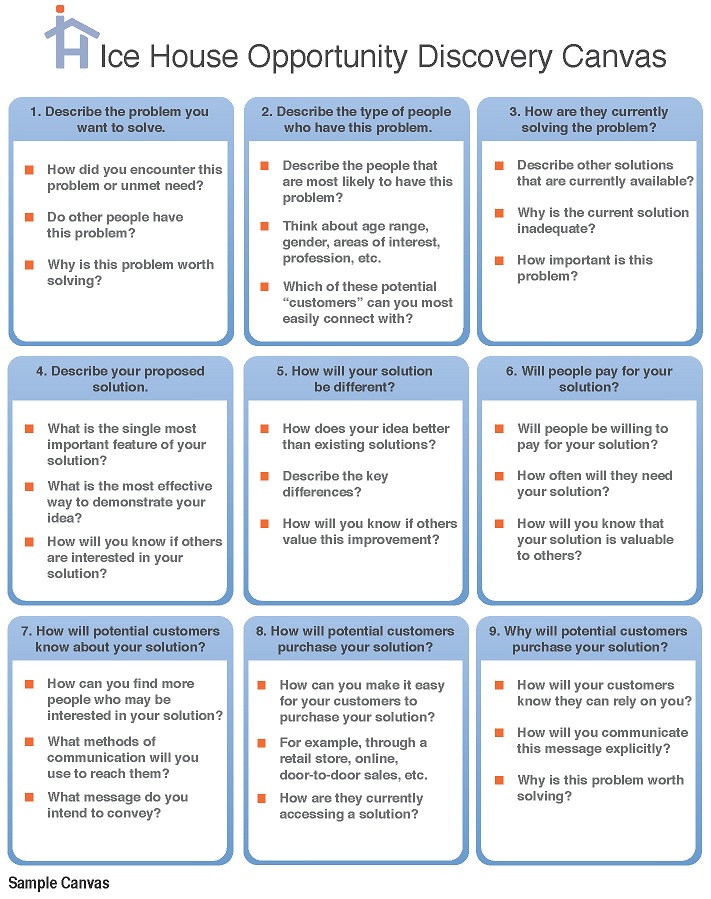Who Owns the Ice House? Eastern KY
AN ENTREPRENEURIAL MINDSET FOR SUCCESS
A pathway to starting or growing your business
 |
Kentucky Living Magazine Article - October 2019 Issue
|
Have you ever dreamed about starting your own business? Do you have an idea that could make money? Do you possess an entrepreneurial mindset? A mindset for success, whether you own your business or work for someone else?
When people hear the word entrepreneur, they think it means starting a business; it does, but it really means so much more. An entrepreneurial mindset is a framework for thinking and acting that can empower anyone to succeed, no matter their chosen path.
SBV is conducting weekly reading and discussion sessions on the Pulitzer Prize nominated book Who Owns The Ice House?, a book inspired by the life story of an unlikely entrepreneur. The program empowers learners by exposing them to entrepreneurial thinking, at the same time immersing them in entrepreneurial experiences to promote entrepreneurial skills. Drawing from eight core concepts, the program enables participants to learn directly from the firsthand experiences of real-world entrepreneurs who share their knowledge and experience throughout the course.
There will be five weekly 90-minutes session. Are you a displaced coal miner, a high school junior or senior, a teacher or a parent? Do you have challenges in getting a job? Entrepreneurship can be a catalyst to success! Go to www.sbventures.org/IceHouse to find out more details and register for this program; call 859-227-0263; or email bclark@sbventures.org.
REGISTER NOW: click here
Participants who complete these reading and discussion sessions will learn to:
- Identify and evaluate opportunities that others overlook
- Transform a simple idea into a sustainable success
- Embrace an entrepreneurial mindset as a life-skill
- Identify and overcome self-limiting beliefs
- Interact with local entrepreneurs for critical guidance and support
“Entrepreneurship is more than a business discipline – it is really a way of life.”
Gary Schoeniger, co-author of Who Owns the Ice House?
The program is hosted by Sustainable Business Ventures (SBV), a non-profit that helps difficult-to-employee individuals create their own jobs through self-employment. Sponsored by Kentucky Highlands Investment Corporation with funds from the Small Business Administration (SBA) and supported by the Licking Valley Rural Electric Cooperative (RECC), the program is available at no cost to citizens in the Licking Valley RECC service territory and other eastern Kentucky communities.
Participants also have access to an amazing group of technical service providers including Mountain Association for Community & Economic Development (MACED), SOAR Business & Innovation Champions, Kentucky Highlands Investment Corp (KHIC), Southeastern Kentucky Economic Development (SKED), Small Business Development Centers, and SBA SCORE. Commercial Bank of West Liberty, destroyed in the 2012 tornado, rebuilt two offices in the bank to serve as a model coworking and training space. Commercial Bank also invested $10,000 for computers and equipment to livestream this and other training programs to multiple sites in eastern KY. Bobby Clark is a speaker, trainer, serial entrepreneur, and a developer of social enterprises. He is the founder & president of Sustainable Business Ventures, a 501(c)(3) non-profit that helps difficult-to-employee individuals create their own job through self-employment. Bobby is co-founder of the Kentucky Entrepreneur Hall of Fame.
Ice House Overview
Mindset - Ice House Entrepreneurship Program (2:59 minutes)
Who Owns The Ice House (2:31 minutes)
Chapter 1: Choice – Video Click Here (1:09 minutes)
Life is not a lottery. The ability to choose the way we respond to our circumstances is fundamental to an entrepreneurial mindset. Choices, rather than circumstances, will ultimately shape our lives. An entrepreneurial mindset empowers you to be mindful of your choices, choosing the life you want rather than accepting life as it is.
Chapter 2: Opportunity – Video Click Here (1:02 minutes)
Problems are often opportunities in disguise. Entrepreneurs are problem solvers, and the secret to their success lies in their ability to identify problems and find solutions. An entrepreneurial mindset challenges you to see problems as opportunities, helping you learn to solve problems for others as a viable path towards individual empowerment.
Chapter 3: Action – Video Click Here (1:04 minutes)
Entrepreneurs are action oriented, and they tend to focus their time and energy on things they can change rather than things they cannot. An entrepreneurial mindset ignites action, encouraging you to solve problems through active experimentation and collaboration.
Chapter 4: Knowledge – Video Click Here (1:04 minutes)
Our effort can only take us as far as our understanding. Entrepreneurs are self-directed, lifelong learners who understand the power of knowledge combined with effort. An entrepreneurial mindset fosters a self-directed approach to learning that encourages you to seek knowledge, think critically, and develop problem-solving skills.
Chapter 5: Wealth – Video Click Here (1:27 minutes)
Most people see work as an exchange of time for money. Entrepreneurs see it differently. The more problems an entrepreneur can solve, the more wealth an entrepreneur can amass. An entrepreneurial mindset helps you understand money to be a tool in service of creating value for others, and the creation of wealth enables you to take advantage of opportunities to solve more problems for more people.
Chapter 6: Brand – Video Click Here (1:41 minutes)
Actions speak louder than words. Entrepreneurs are problem-solvers, and reliability is the key to their success. An entrepreneurial mindset helps you to be intentional about your actions and the way you carry yourself, influencing your brand and how other people view you.
Chapter 7: Community – Video Click Here (1:26 minutes)
Entrepreneurs understand the power of positive influence, and they learn to surround themselves with others who have been where they intend to go. An entrepreneurial mindset understands the importance of creating an intentional community of positive influence, critical guidance, and diverse support.
Chapter 8: Persistence – Video Click Here (1:34 minutes)
All successful entrepreneurs acknowledge the importance of hard work, determination, and perseverance. An entrepreneurial mindset helps you acknowledge that hard work is a normal and necessary part of achieving success, and it equips you to persist in the face of challenges, setbacks, and self-doubt.
College and High School Case Studies on the Who Owns the Ice House Online Course
by the Entrepreneurial Learning Initiative: Click Here

THE ICE HOUSE OPPORTUNITY DISCOVERY CANVAS is a tool designed to guide students through the Opportunity Discovery Process which encourages students to think critically as they learn to identify and solve problems within uncertain circumstances.
The Opportunity Discovery Canvas is divided into three primary sections designed to guide students through the three distinct phases of the Opportunity Discovery Process. Section one encourages students to focus on the problem they intend to solve. Section two encourages students to consider possible solutions. Section three encourages students to think about how they might connect with others who may have the problem they intend to solve. Working in small groups, students are asked to document their assumptions or “best guesses” by addressing the questions within each of the canvas boxes. Once students document their assumptions in the appropriate boxes, they are expected to get out-of-the-building to test their assumptions by interviewing potential customers.

